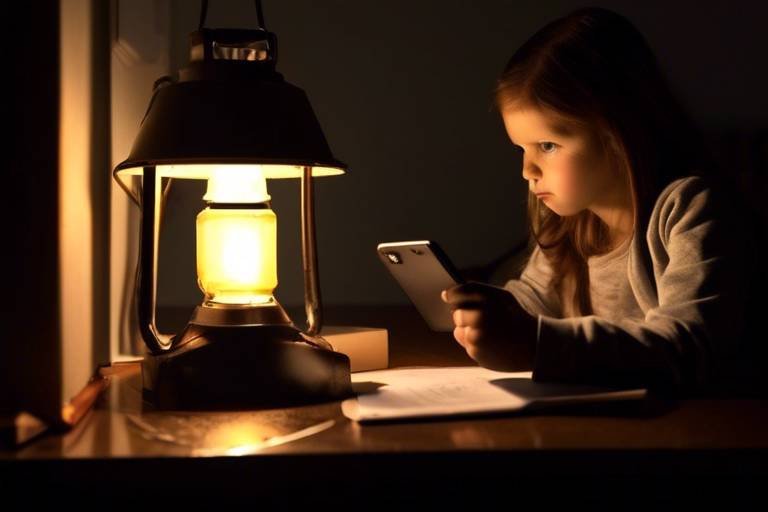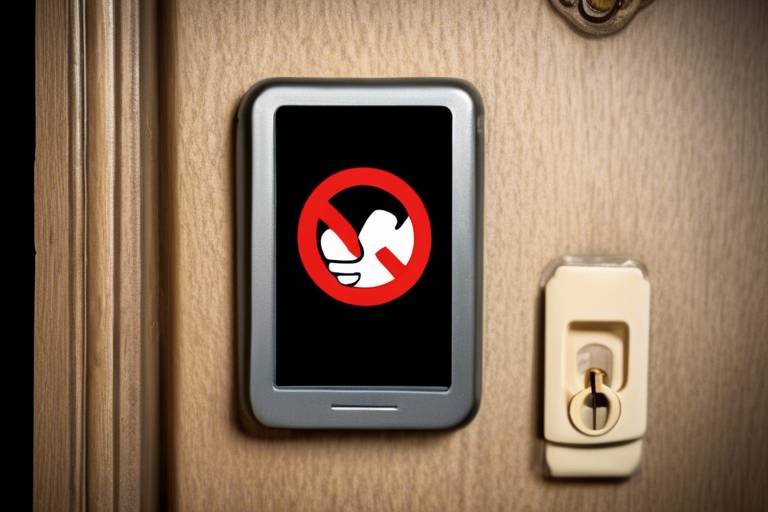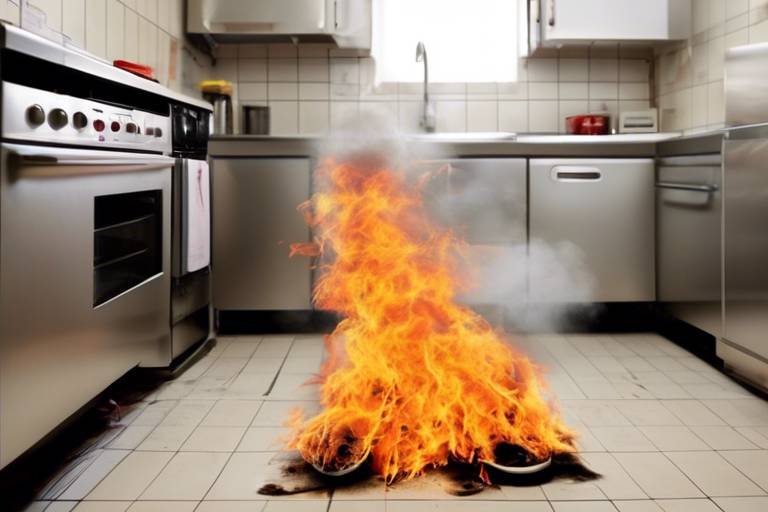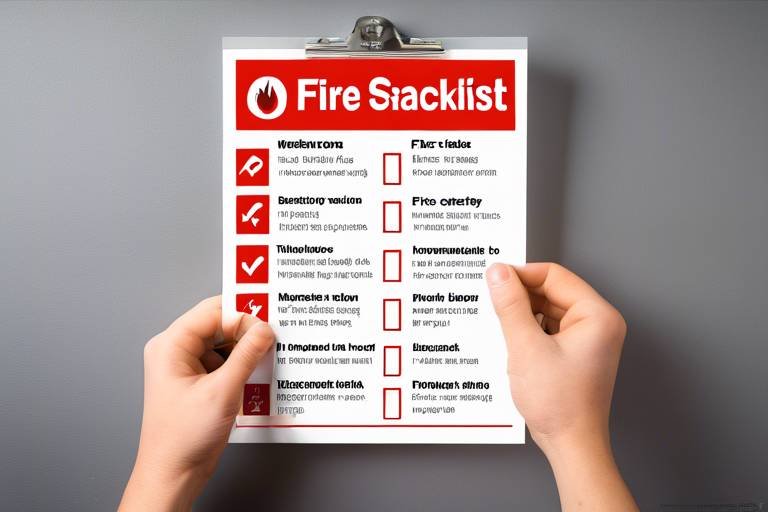Planning for Home Safety During a Power Outage
When the lights go out, it can feel like the world has come to a halt. Power outages can be caused by a variety of factors, from severe weather conditions to equipment failures. Understanding how to prepare for these unexpected moments is crucial for ensuring the safety and well-being of you and your loved ones. In this article, we will delve into essential strategies and tips that will help you navigate through power outages with confidence and ease.
Imagine sitting in your living room, the storm raging outside, and suddenly, the electricity flickers and dies. Your heart races as you realize that your home is now plunged into darkness. The first thought that crosses your mind is, "What do I do now?" This is where planning comes into play. By preparing in advance, you can minimize panic and ensure that you have the necessary supplies and strategies to keep your family safe during such emergencies.
Preparation is more than just having a flashlight and some batteries on hand. It involves creating a comprehensive emergency plan that addresses various aspects of your home and family dynamics. This plan should cover everything from communication methods to evacuation routes, ensuring everyone knows what to do when the lights go out. Think of it as a roadmap guiding you through the chaos of a power outage.
One of the most important aspects of your emergency plan is maintaining a list of emergency contacts. This list should include family members, friends, and local authorities. Keeping this information accessible can make all the difference in a crisis. Consider storing it in multiple places, such as on your phone, in your wallet, and on your fridge, so that it’s always within reach.
Moreover, knowing how to reach local authorities can provide critical updates during an outage. This means you should familiarize yourself with local emergency services and their contact numbers. During a power outage, these channels can be your lifeline to essential information, such as when power will be restored or if there are any safety concerns in your area.
Effective communication among family members is key during emergencies. Establishing a communication plan can help ensure everyone knows how to reach each other, especially if you are separated when the outage occurs. This could involve designating a meeting place or using text messages, which may still work even if the power is out.
In addition to communication, having the right supplies can significantly enhance your safety and comfort during a power outage. Consider creating an emergency kit that includes:
- Flashlights and extra batteries
- Non-perishable food items
- Water (at least one gallon per person per day)
- A first-aid kit
- Portable phone chargers
- Blankets and warm clothing
By planning ahead and ensuring you have these items ready, you can alleviate some of the stress that comes with unexpected outages. Remember, preparation is not just about the supplies; it’s about creating a sense of security for you and your family.
As we navigate the unpredictable nature of power outages, it’s essential to keep safety at the forefront of our minds. Ensuring safety during a power outage is paramount. This includes taking precautions such as avoiding the use of candles, which can pose a fire hazard, and using generators safely to prevent carbon monoxide poisoning.
In conclusion, planning for home safety during a power outage is not just a precaution; it's a necessity. By understanding the causes of outages, creating a robust emergency plan, and ensuring you have the right supplies, you can transform a potentially frightening experience into a manageable situation. Remember, a little preparation goes a long way in keeping your family safe and sound.
Q: How can I prepare for a power outage?
A: Start by creating an emergency plan, maintaining a list of emergency contacts, and assembling an emergency kit with essential supplies.
Q: What should I include in my emergency kit?
A: Your kit should contain flashlights, batteries, non-perishable food, water, a first-aid kit, and any necessary medications.
Q: Is it safe to use candles during a power outage?
A: It’s best to avoid candles due to the risk of fire. Instead, opt for flashlights or battery-operated lights.
Q: How can I stay informed during a power outage?
A: Keep a battery-powered radio or use your smartphone to receive updates from local authorities and emergency services.
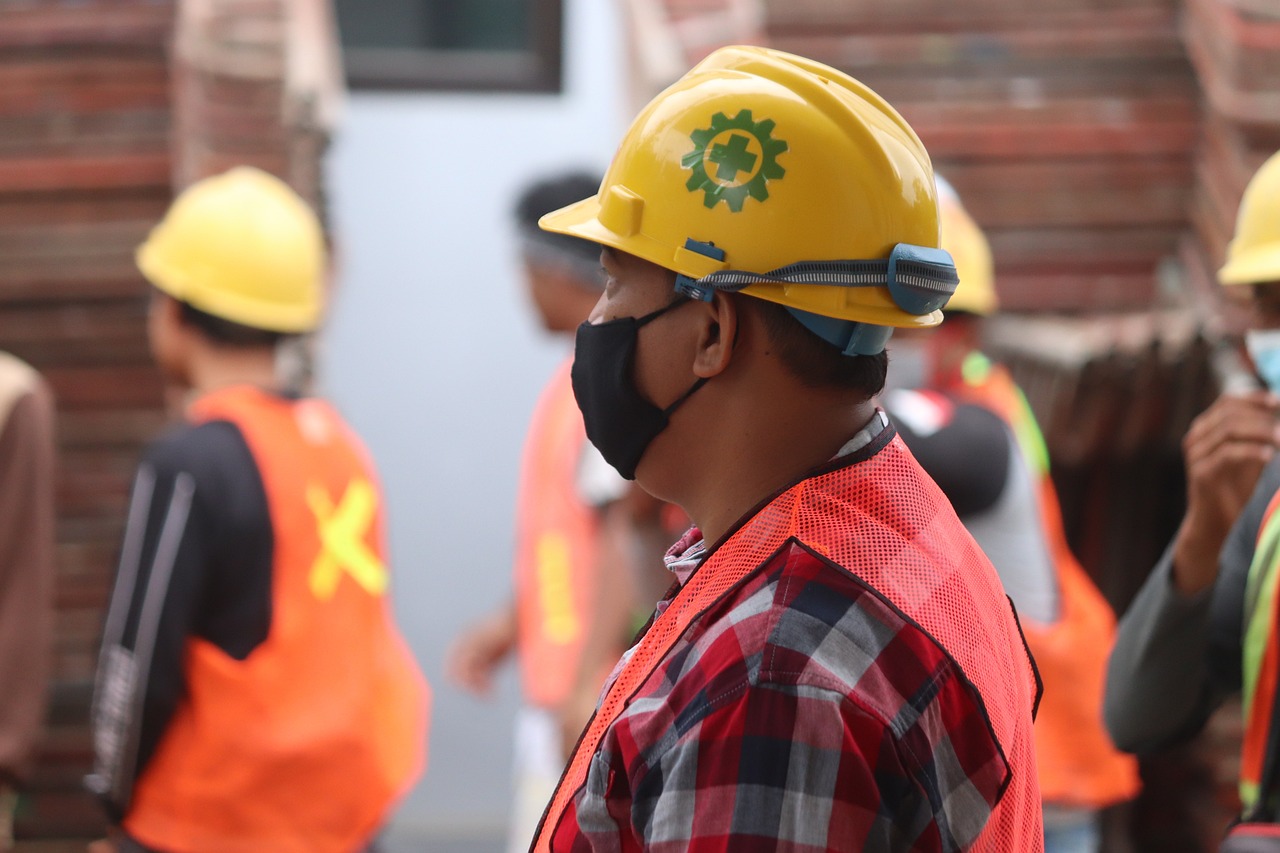
Understanding Power Outages
Power outages can strike at any moment, often leaving us in the dark—literally and figuratively. They can occur due to a variety of reasons, from severe weather conditions to simple equipment failures. Understanding these causes not only helps us prepare better but also enables us to respond effectively when the lights go out. For instance, during a thunderstorm, high winds can knock down power lines, while heavy snow can weigh down branches, causing them to fall onto electrical infrastructure. It's essential to recognize that outages can be both planned, such as during maintenance work, and unplanned, which can happen at the most inconvenient times.
Some common causes of power outages include:
- Natural Disasters: Hurricanes, tornadoes, and earthquakes can wreak havoc on power systems.
- Equipment Failures: Aging infrastructure and unexpected malfunctions can lead to sudden outages.
- Animal Interference: Sometimes, animals like squirrels or birds can cause disruptions by interfering with electrical equipment.
- Human Error: Accidents during construction or maintenance can inadvertently cut power lines.
By understanding these factors, you can take proactive steps to mitigate the impact of a power outage. For example, if you live in an area prone to severe weather, investing in a backup generator or having a well-stocked emergency kit can make a world of difference. Additionally, staying informed about the weather forecast can help you anticipate potential outages, allowing you to prepare in advance. Remember, knowledge is power—especially when the power goes out!
Moreover, it's important to stay connected with your local utility company. Many have online platforms or mobile apps that provide real-time updates on outages and estimated restoration times. This information can be invaluable for planning your next steps. So, the next time you hear a weather report predicting storms, take a moment to consider how you would manage if the power went out. Being prepared is not just about having supplies; it's about having the right mindset and resources to navigate through the unexpected.

Creating an Emergency Plan
When it comes to preparing for a power outage, the importance of having a well-thought-out emergency plan cannot be overstated. Think of it as your roadmap through the storm; it guides you and your family to safety when the lights go out. So, what should this plan include? First and foremost, you need to establish clear lines of communication among family members. In the chaos of an outage, it can be easy to lose track of one another, especially if you’re not all in the same location. Consider designating a central meeting point, somewhere familiar and safe, where everyone can gather if things get hectic.
Next, you should identify evacuation routes. You never know when a power outage might coincide with other emergencies, like severe weather. Having a plan in place will help you move quickly and efficiently. Make sure everyone knows the routes and has access to a map, whether it’s a physical copy or a digital one on their devices. You might even want to practice these routes during daylight hours so that they become second nature.
Another vital component of your emergency plan is maintaining an updated list of emergency contacts. This list should include:
- Family members
- Close friends
- Your local emergency services
- Utility companies
Keep this list in an easily accessible place, such as on your refrigerator or saved in a shared digital folder. Everyone in your household should know where to find it. This way, if the power goes out and you need to reach someone, you won’t be scrambling to remember phone numbers.
It's also crucial to know how to reach local authorities. During a power outage, they can provide essential updates regarding the situation, including estimated restoration times and safety information. Make sure you’re subscribed to local alerts or have a battery-operated radio to receive updates. This allows you to stay informed and make decisions based on the most current information.
Equally important is establishing a family communication plan. In the event of an outage, how will you check in with one another? Consider using text messages or social media, as they might still work even if phone lines are down. You might also want to choose a person outside your immediate area who can act as a point of contact for the family. This way, if someone can’t reach a family member, they can still get updates through this designated person.
Finally, it’s a good idea to regularly review and practice your emergency plan. Just like you wouldn't wait for a fire to practice a fire drill, you shouldn't wait for an outage to familiarize yourself with your emergency plan. Regular discussions about the plan can help ensure that everyone feels confident and prepared. So, gather the family, review the plan, and maybe even role-play a scenario. It’s a great way to make sure everyone knows their role, and it can be a fun bonding experience!
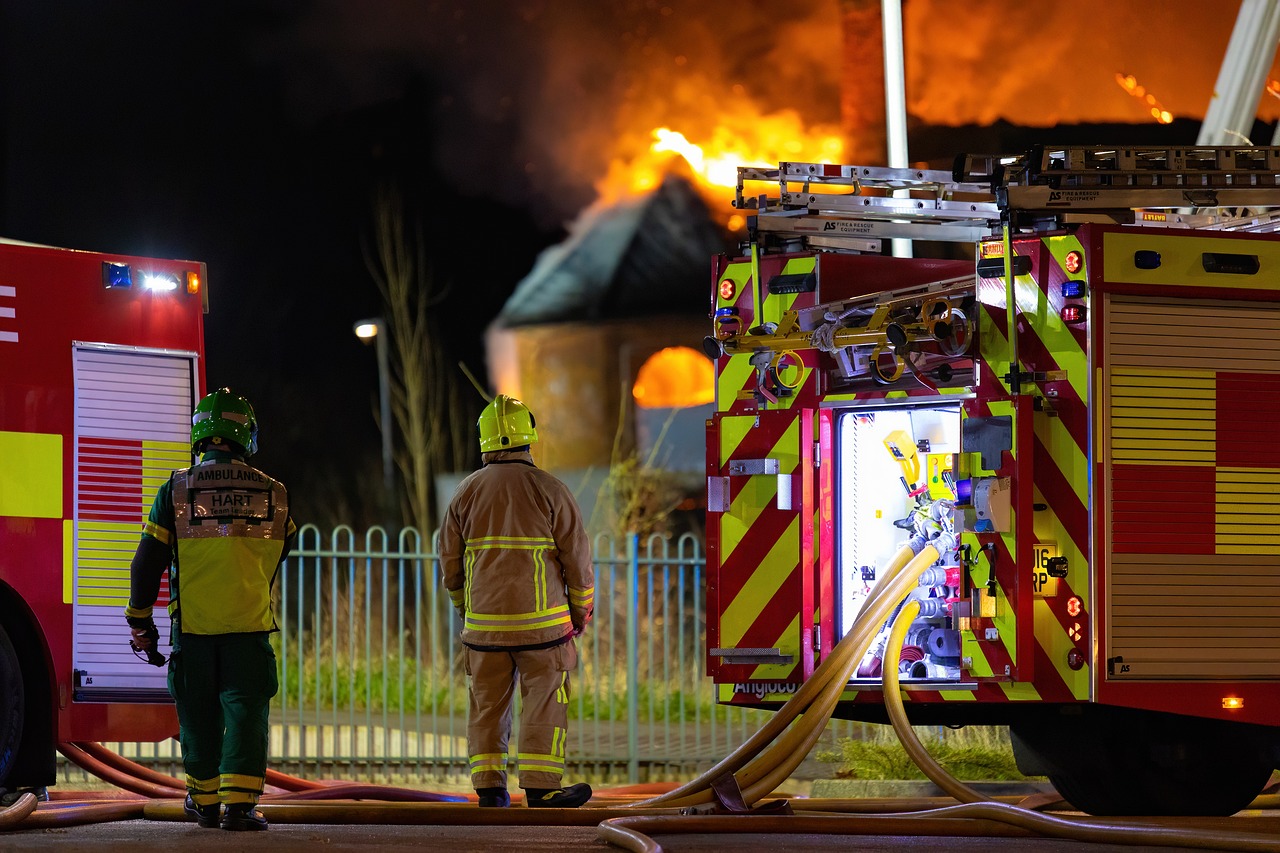
Emergency Contacts
When the lights go out and chaos ensues, having a reliable list of can be your lifeline. Imagine being in the dark, not just literally but also in terms of communication. You need to have a plan in place that ensures you can reach out to the right people when you need them the most. Start by creating a comprehensive list of contacts that includes not only family and friends but also local authorities, utility companies, and emergency services. This way, whether you need to check on a loved one or report a downed power line, you’ll have the necessary numbers at your fingertips.
It’s also essential to keep this information accessible. Consider placing a printed copy of your emergency contacts in a visible location, like on your refrigerator or inside your emergency kit. You might also want to store these contacts in your mobile phone, but remember that during a power outage, your phone's battery may become a concern. Having a backup plan, such as a portable charger, can be invaluable. Additionally, ensure that everyone in your household knows where to find this information and understands the importance of these contacts.
Here are some key categories to include in your emergency contact list:
- Family and Friends: Include immediate family members and close friends who can provide support or assistance.
- Local Authorities: Keep numbers for local police, fire department, and emergency medical services.
- Utility Companies: Have contact information for your electricity, water, and gas providers to report outages or issues.
- Medical Contacts: Include your doctor’s office and any nearby hospitals or urgent care facilities.
By preparing this list ahead of time, you can significantly reduce the stress and confusion that often accompany power outages. Remember, it’s not just about having the numbers; it’s about creating a sense of security and preparedness within your home. So take the time to sit down, gather this information, and ensure that every member of your household knows how to access it. In doing so, you’ll be taking a proactive step toward ensuring your family’s safety during unexpected situations.
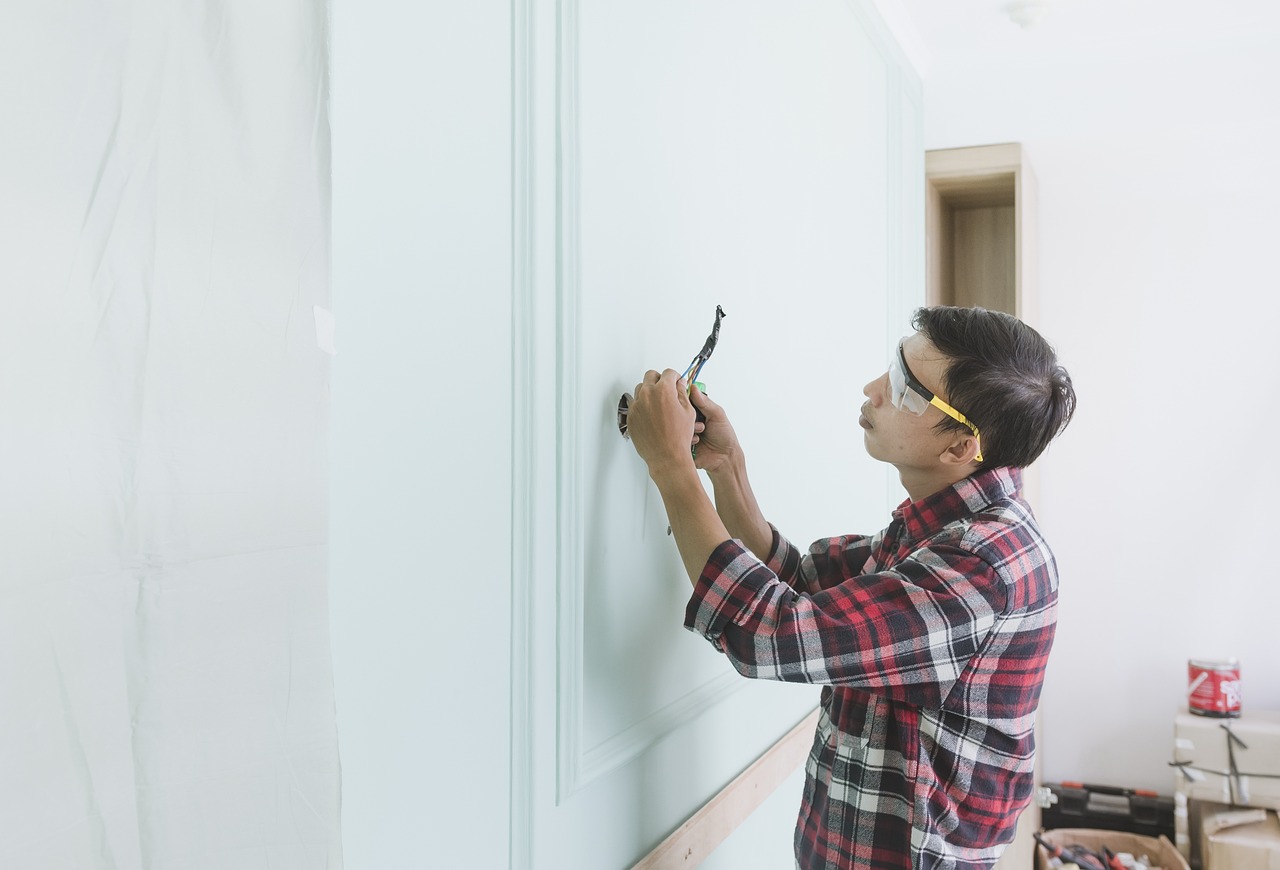
Local Authorities
When the lights go out, knowing how to reach your can be a game changer. They are your lifeline to critical updates and information during a power outage. Whether it's a storm knocking out power lines or a more serious emergency, local authorities can provide timely alerts about the situation. This means knowing who to contact and how to do it efficiently. It's not just about having a number; it's about being prepared to use it!
To ensure you're ready when the unexpected happens, consider keeping a list of important local contacts in a place that's easily accessible. This could be on your refrigerator, in your emergency kit, or even saved on your phone. Here are some key contacts you might want to include:
- Emergency Services: 911 for immediate assistance
- Local Utility Company: For power restoration updates
- Local Government Office: For information on evacuation orders and shelters
- Community Centers: Often serve as emergency shelters
Additionally, many local authorities have social media accounts or websites where they post real-time updates. Following these channels can keep you informed about the status of the power outage and any safety advisories. Imagine being able to check your phone and see exactly what's happening in your area without having to wait for the radio or TV to come back on!
In times of crisis, staying informed is crucial. Local authorities often provide not just updates on power restoration but also important safety information. For example, they may issue warnings about hazardous conditions, such as fallen power lines or flooding. By having a direct line to these updates, you can make informed decisions for your family's safety.
So, make it a priority to familiarize yourself with your local authorities. Knowing how to quickly access their information can not only save time but also ensure that you and your loved ones remain safe and well-informed during a power outage. Remember, being proactive today means peace of mind tomorrow!

Family Communication
When the lights go out, the last thing you want is chaos and confusion among your loved ones. Effective during a power outage can be the difference between a stressful situation and a well-managed emergency. Think of it like a well-rehearsed play; everyone needs to know their role to ensure a smooth performance. So, how do you create a communication plan that everyone can follow?
First and foremost, establish a designated point of contact. This could be a family member who lives nearby or even a friend outside your immediate area. The key is to choose someone who can relay messages and coordinate efforts if you’re separated. Make sure everyone in your family knows who this person is and how to reach them, even without the internet. In today’s world, we often rely on our smartphones, but during a power outage, cell networks can become congested or even go down. Thus, it’s vital to have a backup plan.
Next, consider creating a simple communication tree. This is a visual representation of how family members will communicate with each other during an outage. For example, if you have children, they should know to contact their older siblings first, who will then reach out to the parents. This not only organizes communication but also reduces the chances of misinformation spreading. You can draw this tree out and keep it in a visible spot, like on the fridge, or even create a digital version that can be accessed offline.
Another essential aspect is to have a list of important numbers readily available. These should include not just your designated contact, but also local authorities, emergency services, and utility companies. Write these down on a piece of paper and keep it in a safe yet accessible place. You might be tempted to store them on your phone, but remember, phones need power! Here's a quick look at what your list might include:
| Contact Type | Phone Number |
|---|---|
| Designated Contact | (555) 123-4567 |
| Local Authorities | (555) 987-6543 |
| Emergency Services | 911 |
| Utility Company | (555) 111-2222 |
Lastly, practice makes perfect! Conduct family drills where you simulate a power outage. This not only helps everyone remember the plan but also alleviates anxiety about the unknown. During these drills, discuss what everyone should do, where to gather, and how to communicate. It’s a fantastic way to ensure that when the lights go out, your family stays connected and safe.

Supplies and Equipment
When the lights go out, the last thing you want is to be scrambling around your house looking for supplies. Having a well-stocked emergency kit can be your lifeline during a power outage. Think of it as your personal survival toolbox, ready to help you navigate through the darkness. So, what exactly should you include in this kit? Well, let’s break it down.
First and foremost, you need to have a reliable source of light. Flashlights are a must, but don’t forget to stock up on extra batteries. Imagine being in complete darkness, and your only source of light flickers and dies. A good rule of thumb is to have at least one flashlight per person in your household. Additionally, consider investing in LED lanterns that can illuminate larger areas and last much longer than traditional bulbs.
Next, let’s talk about food and water. During a power outage, your refrigerator won’t be keeping things cool, so it’s essential to have non-perishable food items on hand. Think canned goods, dried fruits, and nuts. You might even want to include some comfort snacks—because who doesn’t love a little chocolate during a crisis? As for water, aim for at least one gallon per person per day for at least three days. It sounds like a lot, but when you’re thirsty, you’ll be glad you planned ahead.
Another crucial item to consider is a battery-operated or hand-crank radio. This device can keep you informed about weather updates and emergency announcements. It’s like having a lifeline to the outside world, even when everything else is silent. Plus, it can be a great way to pass the time by listening to music or catching up on the news.
Now, let’s not forget about first-aid supplies. Accidents can happen, and having a well-stocked first-aid kit can make all the difference. Ensure your kit includes band-aids, antiseptic wipes, pain relievers, and any necessary prescription medications. It’s always better to be over-prepared than under-prepared!
In addition to these essentials, consider adding the following items to your emergency kit:
- Multi-tool or Swiss army knife
- Portable phone charger
- Warm blankets or sleeping bags
- Personal hygiene items (toothbrush, wet wipes, etc.)
- Cash in small denominations
Lastly, it’s wise to create a checklist of these supplies and regularly check your emergency kit to replace expired items or add new ones. Think of it as a ritual; every few months, take a moment to ensure you’re ready for whatever nature throws your way. After all, being prepared isn’t just a smart move; it’s a way to keep your family safe and sound.
Q: How often should I check my emergency supplies?
A: It’s a good idea to check your emergency supplies every 6 months to ensure everything is up to date and in working order.
Q: What should I do if my flashlight batteries die?
A: Always keep extra batteries in your emergency kit. Alternatively, you can use candles, but be very cautious about fire hazards.
Q: How can I keep my food from spoiling during a power outage?
A: If you anticipate a long outage, consider using coolers with ice packs to store perishable items. However, it’s best to focus on non-perishable foods during emergencies.
Q: Is it safe to use a generator indoors?
A: No, never use a generator indoors or in enclosed spaces. Generators produce carbon monoxide, which is extremely dangerous.
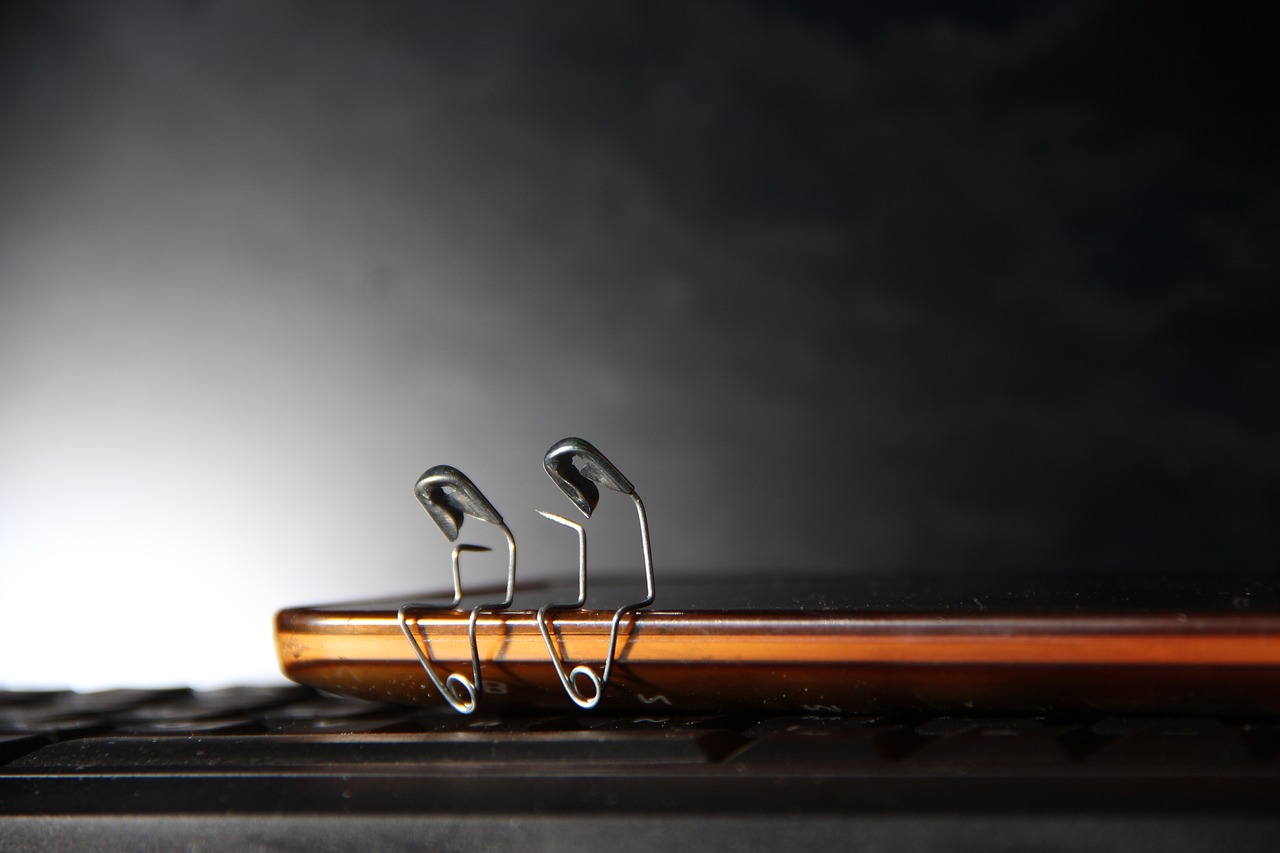
Safety Precautions
When the lights go out, the world can feel a bit chaotic. It's easy to overlook safety amidst the panic of a power outage, but taking the right precautions can mean the difference between a minor inconvenience and a serious hazard. First and foremost, avoid using candles as your primary source of light. While they may seem like a cozy option, they are a leading cause of house fires during outages. Instead, consider using flashlights or battery-operated lanterns, which are much safer alternatives.
Another critical safety measure involves the use of generators. If you have a generator for backup power, it's essential to use it correctly. Generators should always be placed outside and at least 20 feet away from windows, doors, and vents to prevent carbon monoxide poisoning. This invisible gas can be deadly, and because it’s odorless, you might not even realize it’s present until it’s too late. Always ensure that your generator is in a well-ventilated area and never operate it in enclosed spaces, such as garages or basements.
Furthermore, it's important to check your smoke detectors and carbon monoxide alarms regularly. During a power outage, these devices can be your first line of defense against fire and toxic gas exposure. Make sure they are functioning properly before an outage occurs, and replace batteries as needed. If you rely on battery-powered devices, consider keeping extra batteries in your emergency kit to ensure they remain operational.
In addition to these precautions, be mindful of potential hazards around your home. For instance, if your refrigerator and freezer are without power for an extended period, food safety becomes a concern. To avoid foodborne illnesses, keep the refrigerator door closed as much as possible to maintain the cold temperature. If the power is out for more than four hours, it’s advisable to throw away perishable food items that have been above 40°F for over two hours.
As you prepare for an outage, it’s also wise to have a plan for your pets. Animals can become anxious during power outages, and their safety should be a priority. Ensure you have enough food, water, and supplies for your pets, and consider having a designated area where they can feel safe and secure.
Lastly, staying informed is crucial during a power outage. Keep a battery-powered or hand-crank radio on hand to receive updates from local authorities. This can help you stay updated on weather conditions, emergency services, and when power restoration efforts are underway. Having a reliable source of information can provide peace of mind and help you make informed decisions during uncertain times.
In summary, safety during a power outage is all about preparation and awareness. By taking the time to implement these safety precautions, you can ensure that you and your loved ones remain safe and secure, even when the lights go out.
- What should I do first when the power goes out?
Stay calm, check your flashlights, and ensure that your emergency kit is accessible. If you rely on medical equipment, have a backup plan in place.
- How long can food last in the fridge during a power outage?
Food in the fridge can last about 4 hours without power if the door remains closed. After that, it's best to discard perishable items.
- Can I use my gas stove during a power outage?
If you have a gas stove, you can use it for cooking, but be cautious about lighting it without electricity. Always follow the manufacturer's instructions.
- How can I keep my family informed during an outage?
Establish a communication plan with family members, and use battery-powered radios to receive updates from local news sources.

Fire Safety
When the lights go out, the last thing you want to worry about is a fire breaking out in your home. during a power outage is crucial, and it’s essential to be proactive rather than reactive. With the absence of electricity, many people might resort to using candles for light, but this can be a recipe for disaster. Instead of candles, consider using flashlights or battery-operated lanterns, which are much safer alternatives. Remember, a flickering flame can quickly turn into a raging fire if it comes in contact with flammable materials.
One of the most significant risks during a power outage is the increased use of alternative heating sources. If you find yourself needing to heat your home, be cautious. Space heaters can be a handy solution, but they must be used properly to avoid potential fire hazards. Always keep them at least three feet away from anything that can burn, including furniture, curtains, and paper. Additionally, never leave a space heater unattended; it's best to turn it off when you leave the room or go to sleep.
Moreover, if you decide to use a generator during a power outage, safety measures are paramount. Generators should always be operated outside and away from windows and doors to prevent carbon monoxide buildup, which is a silent killer. Make sure to read the manufacturer’s instructions carefully and keep a fire extinguisher nearby, just in case. In fact, having a fire extinguisher is a good idea for any emergency preparedness kit. Here’s a quick table outlining some important fire safety tips during outages:
| Fire Safety Tips | Details |
|---|---|
| Use Battery-Powered Lights | Avoid candles; use flashlights or lanterns instead. |
| Properly Use Space Heaters | Keep them away from flammable materials and never leave them unattended. |
| Generator Safety | Operate outside, away from windows; keep a fire extinguisher handy. |
| Regularly Check Smoke Alarms | Make sure smoke alarms are functional before an outage. |
Lastly, it’s wise to regularly check your smoke alarms and replace batteries as needed. A smoke detector that isn’t working won’t do you any good in an emergency. Test your alarms monthly, and if they’re more than ten years old, consider replacing them. is not just about having the right equipment; it’s about being prepared and knowing what to do in case of an emergency. By taking these precautions during a power outage, you can significantly reduce the risk of fire and keep your home and loved ones safe.
- What should I do if I smell smoke during a power outage? Immediately evacuate the premises and call emergency services once you are in a safe location.
- Can I use my fireplace during a power outage? Yes, but ensure that the chimney is clean and that you use it safely to avoid smoke buildup indoors.
- How often should I check my fire extinguishers? Check your fire extinguishers monthly and have them serviced every six years or replaced every twelve years.

Carbon Monoxide Awareness
When the lights go out, many people turn to generators, space heaters, or even their cars to provide warmth and power. However, this can lead to a silent but deadly danger: carbon monoxide (CO). This colorless, odorless gas is produced when fuel is burned, and it can accumulate quickly in enclosed spaces, making it a serious threat during power outages. Understanding the risks associated with carbon monoxide and taking appropriate precautions can save lives.
First and foremost, it's crucial to recognize the symptoms of carbon monoxide poisoning, which can include:
- Headaches
- Dizziness
- Weakness
- Nausea or vomiting
- Shortness of breath
- Confusion
If you or anyone in your household begins to experience these symptoms, it's vital to get fresh air immediately and seek medical attention. In cases of severe exposure, carbon monoxide can lead to unconsciousness or even death, so awareness is key.
To prevent carbon monoxide buildup during a power outage, follow these essential safety tips:
- Never use a generator indoors or in any enclosed space, including garages, basements, or near windows and doors. Always place generators at least 20 feet away from your home.
- Install carbon monoxide detectors on every level of your home, especially near sleeping areas. Regularly test these detectors and replace the batteries as needed.
- Avoid using gas-powered appliances such as stoves or ovens for heating your home. These appliances are not designed for this purpose and can produce dangerous levels of CO.
- Ensure proper ventilation when using fuel-burning devices outdoors. If you're using a barbecue grill or similar equipment, do so in an open area away from your home.
Education is your best defense against carbon monoxide poisoning. Familiarize yourself with the signs of CO buildup and ensure that everyone in your household knows how to respond. Consider creating a family plan that includes the location of CO detectors, emergency contacts, and the steps to take if someone is suspected of being poisoned.
In summary, carbon monoxide awareness is a critical component of safety during power outages. By taking proactive measures, you can significantly reduce the risk of CO exposure and keep your loved ones safe. Remember, while it’s easy to focus on restoring power, it’s equally important to ensure that you’re not inviting danger into your home in the process.
Q: What should I do if my carbon monoxide detector goes off?
A: Immediately evacuate everyone from the premises and call emergency services. Do not re-enter until authorities have deemed it safe.
Q: How often should I test my carbon monoxide detector?
A: Test your detectors monthly and replace the batteries at least once a year. Also, replace the entire unit every 5-7 years, as they can lose effectiveness over time.
Q: Can I use my car in the garage during a power outage?
A: No, never run your car in an enclosed space like a garage, even if the door is open. The fumes can quickly build up and pose a serious risk of carbon monoxide poisoning.
Frequently Asked Questions
- What should I do first during a power outage?
First things first, stay calm! Check if your neighbors are also affected. If they are, it could be a larger issue. Then, report the outage to your utility company. They need to know so they can send help your way!
- How can I prepare my home for a power outage?
Preparation is key! Start by creating an emergency kit that includes flashlights, batteries, non-perishable food, water, and a first-aid kit. Don’t forget to stock up on any necessary medications. Having a plan in place will make you feel more secure when the lights go out!
- Is it safe to use candles during a power outage?
While candles can provide light, they also pose a fire risk. Instead, consider using battery-operated lanterns or flashlights. If you must use candles, never leave them unattended and keep them away from flammable materials!
- How do I keep food safe during a power outage?
Keep your refrigerator and freezer doors closed as much as possible. A full freezer can keep food safe for about 48 hours, while a half-full freezer lasts about 24 hours. If in doubt, throw it out! Better safe than sorry!
- What should I know about using generators?
Generators can be lifesavers, but they come with risks! Always use them outdoors to avoid carbon monoxide poisoning, and keep them at least 20 feet away from your home. Make sure to connect appliances directly to the generator, not to your home’s electrical system!
- How do I stay informed during a power outage?
Stay connected through your mobile device if you have a charged battery. Use battery-powered radios for updates from local authorities. Sign up for alerts from your utility company to get real-time information about the outage and restoration efforts!
- What are some fire safety tips during a power outage?
To minimize fire risks, avoid using candles and be cautious with generators. Have a fire extinguisher handy and know how to use it. If you smell gas or see smoke, evacuate immediately and call emergency services!
- How can I ensure my family knows what to do during an outage?
Communication is vital! Discuss your emergency plan with your family ahead of time. Make sure everyone knows where the emergency kit is stored, how to contact each other, and what to do in case of an emergency!

